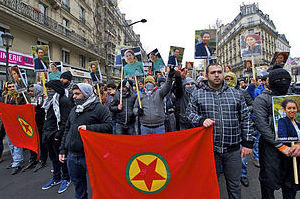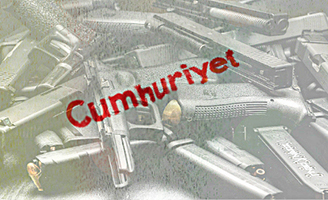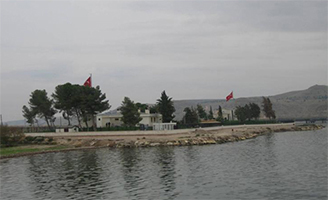Münir: PKK chose the most stupid answer to Erdogan
Metin Münir on the t24 news site writes that Erdoğan, after tasting his first election defeat, turned his ire and hate against HDP and its leaders. He ended the solution process. He sent the air force to bomb Kandil. PKK, the target of this attack, had many choices; without hesitation, the PKK chose the most stupid one. It started to spread terror. Maybe the leaders of the PKK, like all other aging warlords, could not accept that they are no longer in tune with the times, maybe they could not bring themselves to accept that the time has come for them to leave the initiative to the civilians. Whatever Erdoğan does, the most rational thing for the PKK to do is to pull out its warriors from Turkey and concentrate on the fight against ISIS.
Bursali: the Kurds are breaking away from Turkey
Orhan Bursalı in Cumhuriyet calls attention to a statement made by Kurdish leader Cemil Bayık: “No one can force us to pull out the guerilla from the north (from Turkey) or force us to lay down our arms. These are things that are never going to happen.” The leaders of the PKK/KCK have embraced the opportunity that has been offered them in Syrian Kurdistan; they are strengthening their positions there (through the PYD and with the help of the U.S. and the West); the focus of their policies is primarily to view Southeastern and Eastern Anatolia as forming one unit together with Syrian Kurdistan. The proclamations of “self-rule” in two provinces and six counties are not only a result of the [Turkish air force] bombings [of Kandil]; this is something for which they have prepared for a long time. The proclamations of Kurdish “self-rules” are one step: the message is “We don’t recognize the central government in Ankara.” They speak of “Revolutionary people’s war.” This means that we can expect smaller and bigger uprisings with the participation of the masses. It appears that the PKK/KCK has opted for policies that break off the bonds with Turkey.
Erdoğan’s War: The Causes and Consequences of the Upsurge in Kurdish Violence
By Gareth Jenkins (vol. 8, no. 15 of the Turkey Analyst)
In recent weeks, Turkey has been wracked by an escalation in Kurdish-related violence. Not only could the upsurge have been prevented but there are fears that the worst may yet be to come. The fear is that President Recep Tayyip Erdoğan may order an even harsher crackdown over the weeks ahead and that, with its rural units depleted by deployments to Iraq and Syria, the PKK may increasingly respond by staging attacks, including more suicide car bombings, in the cities.

Lies and Videotape: Trucks, Weapons and Turkey’s Spiraling Descent
By Gareth Jenkins (vol. 8, no. 11 of the Turkey Analyst)
On June 2, 2015, President Recep Tayyip Erdoğan called for the editor of Turkey’s oldest newspaper to be sentenced to life in prison after the daily published evidence apparently showing that the Turkish government had lied about sending weapons to extremist groups in Syria.

Losing a Foothold in a Dream: Turkey's Evacuation of Süleyman Shah
By Gareth Jenkins (vol. 8, no. 4 of the Turkey Analyst)
On the night of February 21-22, 2015, amid fears that it was in danger of being overrun by the ISIS, the Turkish military staged a cross-border rescue operation to evacuate the garrison that had been guarding the tomb of Süleyman Shah in northern Syria. In a move redolent with symbolism for the collapse of Ankara’s dream of transforming the Middle East into a sphere of neo-Ottoman Turkish influence, Turkish troops brought the three coffins in the tomb back to Turkey and detonated explosives to destroy the mausoleum in which they had been housed.




